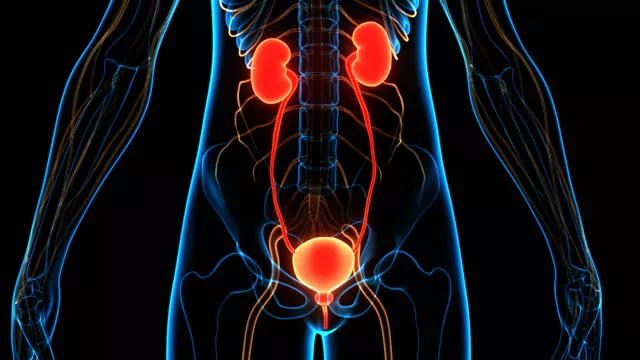What Is Frequent Urination, and How Often Should You Pee Every Day?
Frequent urination occurs when you need to use restrooms more frequently than normal during the day. The usual range for most healthy women who are not pregnant is 6-8 times in a 24-hour period. If you urinate more regularly than this, you may be suffering from frequent urination.
Frequent urination can occur on its own and does not always indicate a health problem. However, if it coincides with other symptoms such as a temperature or a burning sensation while peeing, your doctor may want to investigate possible links to other pelvic health conditions. Understanding why you have frequent urination, regardless of the cause, is the first step towards obtaining relief. Personalised treatments to assist in reducing frequent urination in Aster Medcity are available, helping you to restore control of your daily routine.
Urological Health and Hormones:
Urological health is an important part of general health since it includes the functions of the urinary system as well as the male and female reproductive systems. Understanding the complex interaction between urology and hormones is important for optimum health.
Hormone Function and Understanding:
Hormones are chemical messengers produced by our endocrine system's glands. They play an important role in the regulation of many biological activities, including development, metabolism, mood, and, most importantly, urological health. The key hormones that come into play in this context are:
- Estrogen and Progesterone: These are primarily female sex hormones, but they also exist in smaller quantities in males. Oestrogen promotes blood flow and tissue flexibility, which helps to preserve the health of the urinary tract and bladder. Progesterone, on the other hand, impacts urethral and bladder function.
- Testosterone: Testosterone, the principal male sex hormone, aids in the growth and maintenance of the male reproductive system, including the prostate, which is strongly related to urological health.
- Antidiuretic Hormone (ADH): ADH, also known as vasopressin, regulates the quantity of water reabsorbed by the kidneys, influencing urine concentration and volume.
Hormonal Changes and Urological Disorders
Let us now look at how hormonal variations can affect urological health:
Menopause and Urological Changes: Women's oestrogen levels drop significantly during menopause. This hormonal shift can result in a variety of urological problems, such as vaginal dryness, urinary incontinence, and an increased risk of urinary tract infections (UTIs).
- Prostate Health and Testosterone: In men, testosterone plays a vital role in prostate health. Changes in testosterone levels can affect the size and function of the prostate gland, potentially leading to benign prostatic hyperplasia (BPH) or prostate cancer.
- ADH Imbalance: Changes in ADH levels can result in conditions such as diabetes insipidus, causing excessive thirst and urination.
Management and Treatment
It is essential for diagnosis and treatment to understand the links between hormones and urological health. Hormone replacement treatment (HRT) may be advised for women having menopausal symptoms impacting their urinary health. Treatments for prostate difficulties in men may include BPH medicines or targeted therapies for prostate cancer.
What Causes Women to Urinate Frequently?
Age, habits, medical issues, and certain life circumstances can all contribute to more trips to the loo. Frequent urine can be a natural and transient phenomenon, for example, during pregnancy. It can, however, be a symptom of a more serious health problem, demanding consultation with a medical practitioner. Here are 12 main causes of frequent urination in women:
Excess Fluid Intake: Drinking an excessive amount of fluids causes the body to remove the excess through urine. Your hydration requirements may vary depending on your activity level and environmental factors, thus urinating frequently could indicate overhydration








